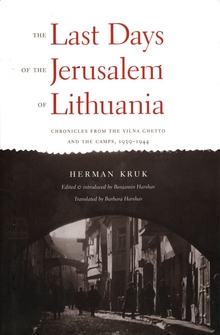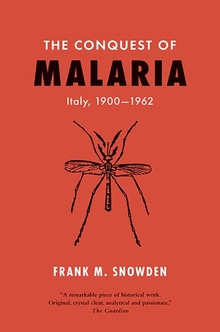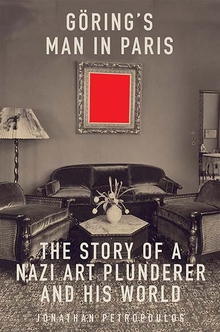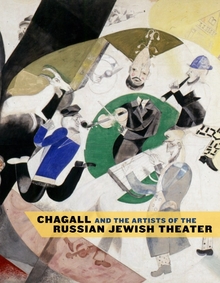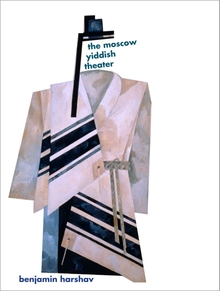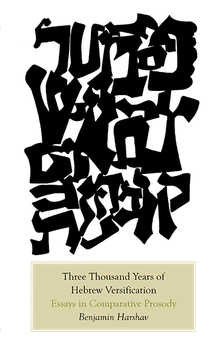The Last Days of the Jerusalem of Lithuania
WARNING
You are viewing an older version of the Yalebooks website. Please visit out new website with more updated information and a better user experience: https://www.yalebooks.com
Chronicles from the Vilna Ghetto and the Camps, 1939-1944
Herman Kruk; Edited by Benjamin Harshav; Translated by Barbara Harshav
For five horrifying years in Vilna, the Vilna ghetto, and concentration camps in Estonia, Herman Kruk recorded his own experiences as well as the life and death of the Jewish community of the city symbolically called “The Jerusalem of Lithuania.” This unique chronicle includes many recovered pages of Kruk’s diaries and provides a powerful eyewitness account of the annihilation of the Jewish communities of Eastern Europe. This volume includes the Yiddish edition of Kruk’s diaries, published in 1961 and translated here for the first time, as well as many widely scattered pages of the chronicles, collected here for the first time and meticulously deciphered, translated, and annotated.
Kruk describes vividly the collapse of Poland in September, 1939, life as a refugee in Vilna, the manhunt that destroyed most of Vilna Jewry in the summer of 1941, the creation of a ghetto and the persecution and self-rule of the remnants of the “Jerusalem of Lithuania,” the internment of the last survivors in concentration camps in Estonia, and their brutal deaths. Kruk scribbled his final diary entry on September 17, 1944, managing to bury the small, loose pages of his manuscript just hours before he and other camp inmates were shot to death and their bodies burnt on a pyre.
Kruk’s writings illuminate the tragedy of the Vilna Jews and their courageous efforts to maintain an ideological, social, and cultural life even as their world was being destroyed. To read Kruk’s day-by-day account of the unfolding of the Holocaust is to discern the possibilities for human courage and perseverance even in the face of profound fear.
Kruk describes vividly the collapse of Poland in September, 1939, life as a refugee in Vilna, the manhunt that destroyed most of Vilna Jewry in the summer of 1941, the creation of a ghetto and the persecution and self-rule of the remnants of the “Jerusalem of Lithuania,” the internment of the last survivors in concentration camps in Estonia, and their brutal deaths. Kruk scribbled his final diary entry on September 17, 1944, managing to bury the small, loose pages of his manuscript just hours before he and other camp inmates were shot to death and their bodies burnt on a pyre.
Kruk’s writings illuminate the tragedy of the Vilna Jews and their courageous efforts to maintain an ideological, social, and cultural life even as their world was being destroyed. To read Kruk’s day-by-day account of the unfolding of the Holocaust is to discern the possibilities for human courage and perseverance even in the face of profound fear.
Co-published with the YIVO Institute for Jewish Research
Benjamin Harshav is J. & H. Blaustein Professor of Hebrew and Comparative Literature, Yale University. Barbara Harshav has translated more than twenty-five books of fiction and nonfiction from French, German, Hebrew, and Yiddish into English. She teaches translation theory and practice at Yale University.
"This is a historical source of tremendous importance, and Professor Harshav has performed prodigious labor in reconstructing the author’s original text."—David Engel, Greenberg Professor of Holocaust Studies, New York University
"This is one of the world’s great wartime memoirs. Kruk left us a stunning treasure—a one person’s Ringelblum’s archive about the Vilna ghetto, which is simultaneously a literary masterpiece."—Jan Gross, Department of Politics, New York University, author of Neighbors
“Herman Kruk’s Diary is one of the major sources that we have about the life and death of the Jews of Vilna during the Holocaust. The wealth of precise information and the tragic reality conveyed set this diary on par with Emanuel Ringelblum’s notes from the Warsaw ghetto or with the collective voice of the Lodz ghetto chroniclers. This is an extraordinary document.”—Saul Friedlander, UCLA
“This is a unique and extremely valuable diary of a victim of the Holocaust in Vilna (Vilnius), Lithuania. Kruk, an active member of the Jewish Labor Bund from Warsaw, who attempted, not without success, to create an archive of the Vilna ghetto (some of which survived), was an acute observer and critic of everything that happened around him. His insights into the dilemmas faced by the ghetto’s leadership on the one hand, and the resistance movement on the other hand, as well as his deep commitment to the preservation of Jewish culture, make this diary one of the essential documents from that tragic era.”—Yehuda Bauer
"Indispensable for comprehension of the Holocaust. Essential."—Choice
"Masterful."—Masha Leon, Forward
"[A] major classic. . . . Kruk’s elaborate delineation of the destruction of this center of Jewish learning takes on an almost mythic quality, causing the lost culture to resonate throughout this mesmerizing and heart-rendering book. This is one of the best books on the Holocaust—ever!"—David B. Rosenfield, Houston Jewish-Chronicle
"Must reading."—lifestyles.com
"Real treasures, as we all know, lie buried. Herman Kruk’s diary is a case in point. . . . The Last Days of Jerusalem of Lithuania will leave its readers eager for the next edition. . . . I couldn’t get enough of this bulky masterpiece."—Jan T. Gross, Los Angeles Times
"A powerful addition to the literature of the Shoah."—Jan T. Gross, Los Angeles Times Book Review
"This authoritative, stunningly edited edition of Kruk’s acclaimed journals, news postings and poems of life and death in the Jewish ghetto of Vilna and later in a labor camp in Estonia is a major addition to Holocaust literature and Jewish history. . . .[A] mesmerizing and heartbreaking book."—Publishers Weekly
"A fascinating, heart-wrenching account."—Andrew B. Wertheimer, Libraries & Culture
Chosen as an Outstanding Academic Title for 2003 by Choice Magazine
Named a Best Book of 2002 by The Los Angeles Times Book Review
ISBN: 9780300044942
Publication Date: September 10, 2002
Publishing Partner: Co-published with the YIVO Institute for Jewish Research
Publication Date: September 10, 2002
Publishing Partner: Co-published with the YIVO Institute for Jewish Research
816 pages, 6 1/8 x 9 1/4
32 b/w illus.
32 b/w illus.

